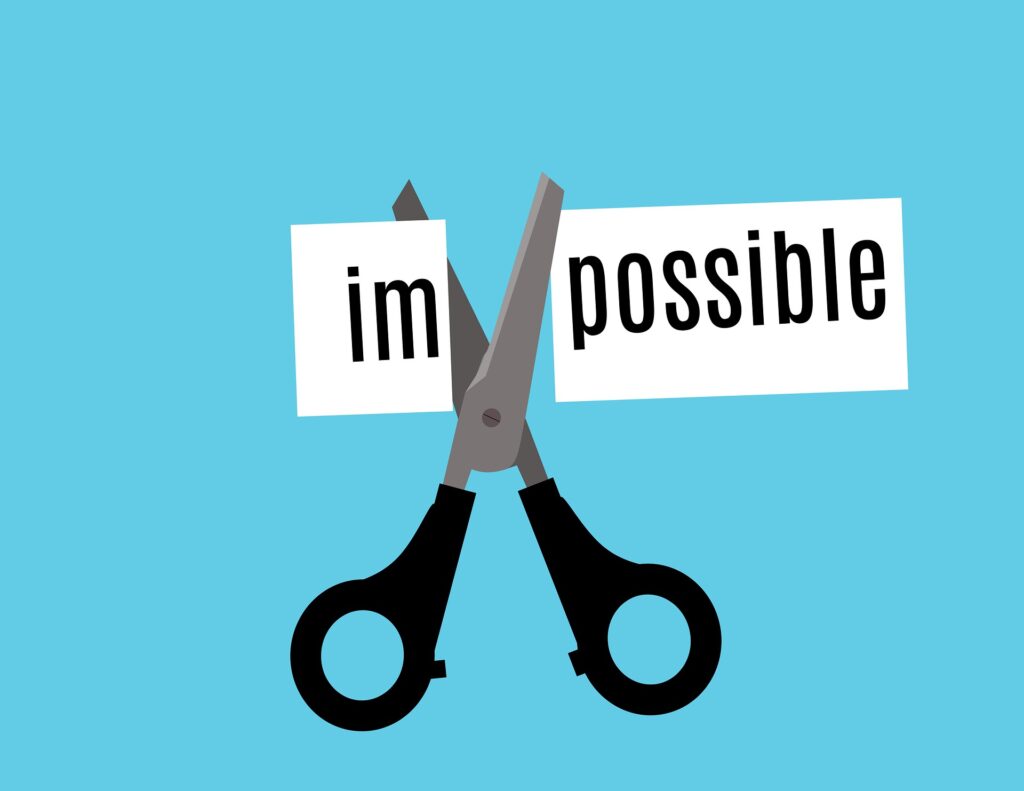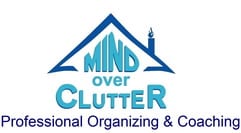Proactive organizing (is it for you?)
My guest blogger is Harold Taylor from Taylor in Time. He is a time management specialist. On October 20/2021 is wrote this thought provoking article.

“There was an interesting study done by Joybird, a custom furniture company, on how Americans organize their homes. It involved a survey of 1900 people who were asked among other things, how often they organized their homes. Responses indicated that 48.1% of them tidy up their home every week, 17.1% every two weeks, 19.3% once a month, 6.5% every other month, 6.1% every six months, 2.4% once a year, and 0.5% never.
But what was conspicuously absent was the option of “all the time,” which to me would have been a popular choice. At least it is one I subscribe to, and seems to be the easiest, most efficient, and most proactive way of keeping on top of your work or housekeeping. To quote Mark Forster, in his book, Secrets of Productive People, “being on top of your work gives you a sense of energy and flow. Being behind causes stress, and results in exhaustion, burnout, and depression.”
Personally, I would rather make the bed when I get up, stick the dishes and a dishwasher after I eat, and make the school kids’ lunches before I go to bed the night before. I could straighten out the kitchen while my meal was cooking, clean the bathtub while I was taking my shower, and wipe out the basin in the morning after I washed my hands. It would be easy to clean the kitchen sink while the kettle boiled and relax with my coffee as I listened to the news.
If people were proactive, they would stop for gas when it was convenient, not when the gas gauge was showing empty. And they might have time to check the tires while they were there. When shopping, they could buy two frequently used, but non-perishable, items and buy another one at their convenience after the first one was used. It is the same principle with office supplies. They should never run out of sticky notes, printer paper, staples, pens, glue sticks, batteries, light bulbs and so on.
At night they could select the clothes that they wanted to wear the next day instead of leaving the decision until morning when they are still half asleep and rushed for time.
And of course, the more stuff they have in their home, the harder it is to keep orderly, whether clothes, jewelry, or whatever. I have a rule that when I buy something, such as a new sweater, I get rid of an older one.”
Many of my clients say they get tired of cleaning, decluttering and organizing all the time. Once things are organized it takes less time to put things away and clean things up. Everything has a place and you don’t have to think anymore about what to do with an item. Cleaning takes less time because you are not tidying up and cleaning. Surfaces are empty of “junk”. Most things in your life only take a few minutes to do. Do them right away, avoid big clean-ups and enjoy your time doing the things you want to do.
Let me know your thoughts about this article. Can you put things away and clean things up immediately after you are done using them?

Julie Stobbe is a Trained Professional Organizer and Lifestyle Organizing Coach who brings happiness to homes and organization to offices, coaching you virtually through Zoom. She has been working with clients since 2006 to provide customized organizing solutions to suit their individual needs and situations. She uses her love of physical activity to reduce clutter, in your home and office. She guides and supports you in managing your time. If you’re in a difficult transition Julie can coach you to break-free of emotional clutter constraining you from living life on your terms. Online courses are available to help instruct, coach and support your organizing projects. Get started by downloading Tips for Reorganizing 9 Rooms.
Contact her at julie@mindoverclutter.ca


Starting my business when my children were babies helped me be motivated to find a home for everything. This saved me time and money and helped me be more present, enjoy each day, and not worry about lost things or forgetting to do actions.
I always put things away right away because it makes me feel less anxious. It was interesting to learn that there is a term for it.
Aw, I love Harold Taylor! Aren’t those statistics just so interesting?
I think “all the time” is definitely where I fall, and I think this may be what sets me apart from many. I will admit that when I was juggling small children, I couldn’t always put things away in the moment, because I had a diaper to change or some other bodily explosion to address. Or perhaps I had a screaming child who wasn’t tolerant of me walking around resetting my space.
However, it is always a priority for me, because I feel better when my space is in order. If I can’t get the task done completely, I’ll often do whatever I can, such as put an item on the stairs so I can carry it up next time I go.
I am on the “all the time” end of the scale too. At one time I would do a quick tidy-up after my kids left for school. I had to train myself to leave this for a different time and make sure I had time to get “more important” things done and then do the tidying up before the children were back from school.
Harold is the best! His advice is always so straightforward and compelling. And how astute of him to suggest the Joybird survey needed one more category of “all the time.” I wonder if people consider some of the “completing the cycle” things that Harold suggested as organizing. That would be interesting to find out. Being organized is a mindset, which includes things like cleaning up as you go or buying gas before the tank is empty. As your article title states, “proactive organizing” is a way of being.
I definitely subscribe to that camp.
I think you are right that people don’t think of cleaning up as you go or buying gas before you absolutely need it as organizing. I think of it as time management and so it is an organizing skill. Setting these types of habits and routines in your life makes life simpler and easier so you’re not always hurried at the last minute. I always bought gas when I came back into the city because I knew I would not have the extra time in the morning.
Harold is always so wise, and I definitely agree with his point. I suspect, however, that the lack of an “all the time“ option is more due to the notion, at least, among many Americans, that organizing is a more intensive project than tidying. Tidying is returning things to a setpoint, whereas organizing feels more like the equivalent of fixing something broken or remodeling. Conceptually, it feels bigger than the rituals of home maintenance.
That is a great definition of the difference between organizing for the purpose of home maintenance and organizing as an intensive project. Thank you for the comment.
Agreed. I consider ongoing maintenance to be part of organizing (tidying when there’s a home for everything), but I think most people still think of organizing as an event, not a process.